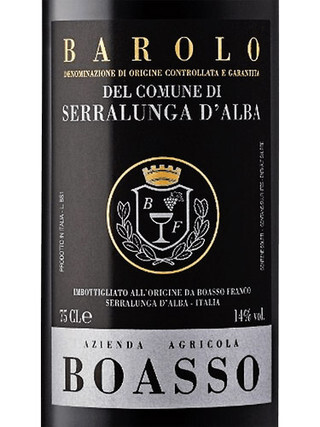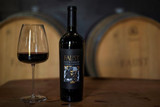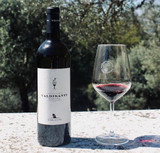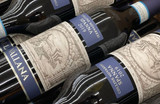May 23rd 2025
Nebbiolo Wines: Italy’s Iconic Red Wine Explained
When we refer to great red wines, few compare to the personality and sophistication of Nebbiolo. Considered one of Italy's most excellent noble grape varieties, Nebbiolo has fascinated wine enthusiasts for centuries with its structure, elegance, and distinct profile. Whether enjoying a glass of Barolo or venturing into the more accessible Langhe Nebbiolo, there's always something new to experience in each glass.
In this blog, we’ll dive into what makes Tempranillo so special, from its origins and flavor profile to regional styles, food pairings, and must-try bottles from WHWC.
What is Nebbiolo?
Nebbiolo is a red wine grape that produces wines with excellent depth and aging capacity. The grape has a pale color, but firm tannins and a high acidity. With classic fragrances of roses, cherries, tar, and licorice, Nebbiolo possesses an intriguing aroma that matures gracefully over time.
Origins of the Name "Nebbiolo"
The origin of "Nebbiolo" lies in the Italian term nebbia, the word for fog. The name may be inspired by the morning fog that swaddles the Piedmont vineyards when Nebbiolo's harvest comes, or by the grape's ethereal natural bloom surrounding berries with a mistiness. Regardless, the mysticism of Nebbiolo runs deep in both its name and its legacy.
Where Nebbiolo Comes From: The Piedmont Region
Nebbiolo is an indigenous grape from Piedmont, the northwestern region of Italy, famous for its rolling hills and microclimates. The terroir here, climate, soil type, and altitude, is responsible for a gigantic contribution towards building the complexity of the grape. With its centuries-old winemaking culture, Piedmont is one of the crown jewels of Italian wine regions.
With foggy mornings in the area, the Nebbiolo prolongs the grape's ripening time, giving greater flavor time. Most vineyards are planted on steep, sunny slopes, allowing the grapes to mature to the best possible level. Moreover, the combination of warm days and cool nights provides perfect conditions for maintaining acidity and promoting aromatic expression. These conditions lead to Nebbiolo wines of remarkable depth, ageability, and unmistakable refinement.
Key Appellations: Barolo, Barbaresco, Langhe
Piedmont's three most renowned Nebbiolo-producing appellations are:
- Barolo: The "King of Wines," Barolo is powerful, intense, and intended for aging.
- Barbaresco: A bit softer, yet more elegant, frequently more accessible in youth.
- Langhe: Provides an entry-level, more affordable introduction to Nebbiolo, perfect for everyday drinking.
Visit our hand-picked Nebbiolo selection at WHWC to discover a bottle that fits your taste.

Nebbiolo vs. Barolo: What’s the Difference?
Whereas all Barolo wines are produced using 100% Nebbiolo grapes, not every Nebbiolo wine is Barolo. Barolo adheres to rigorous DOCG classification standards, requiring a minimum aging time of 38 months, including a minimum of 18 months in oak barrels.
The more extended aging period enables the wine to muster sophisticated layers of flavor, a firm tannic structure, and exceptional structure that distinguishes Barolo from other Nebbiolo wines. Billed as the "King of Wines," Barolo has stunning aging potential, with numerous bottles peaking after ten or more years.

Barbaresco, another of the DOCG wines, also comes from Nebbiolo grapes, but is generally softer and more drinkable when young. It needs a minimum of 24 months aging, including a minimum of 9 months in wood. Due to variations in microclimate and soil, Barbaresco is usually lighter, more aromatic, and ages quicker than Barolo, giving it an elegant foil status in the Nebbiolo family.
Tasting Profile: What Does Nebbiolo Taste Like?
Nebbiolo is a sensory treat. The nose has light floral aromas of rose and violet overlaid with cherry, tar, and licorice. There are also subtle spice and mineral notes adding depth to its nose. On the palate, it's all about balance; crisp acidity, firm tannins, and a long, earthy finish that goes out on a gentle note.
Aging over time, old Nebbiolo takes on subtleties of dried fruit, leather, tobacco, and forest floor. Suggestions of dried herbs and balsamic can also appear, adding depth and complexity to a refined experience. It's a wine that responds well to aging and good storage, revealing additional aspects of its personality with every passing year.
Understanding Nebbiolo’s Tannins and Aging Potential
One of the most characteristic features of Nebbiolo is its full-bodied tannin structure. The tannins play an essential role in the wine's aging potential. A good Barolo can readily age 10 to 30 years, changing in the bottle to display new dimensions of complexity.
For proper appreciation of young Nebbiolo, decanting for 1-2 hours is optimal to mellow the tannins and ventilate the aroma. For an older bottle, a slow pour and short decanting suffice.
Best Food Pairings with Nebbiolo
Due to its vivacious acidity and tannic hold, Nebbiolo is a fantastic match for lush, hedonistic food with enough heft to handle its strident personality. We adore it with:
- Mushroom ragu-covered pasta or earthy truffle risotto
- Slow-cooked osso buco or braised short ribs
- Bold aged cheeses, like Parmigiano-Reggiano or Taleggio, which help activate their savory depth
Buying Guide: How to Choose a Great Nebbiolo or Barolo
Selecting the proper bottle depends on your taste, price range, and type of experience you desire.
- Entry-level Nebbiolo: Langhe wines are great value, have gentler tannins, and are available to drink earlier. They are ideal for newcomers to the Nebbiolo universe.
- Great Barolo: These are tannic, structured, and meant to be aged. Try older vintages if you want complexity and depth; they usually repay waiting with layers of matured aromas and flavors.
- Barbaresco alternatives: For a compromise, Barbaresco provides Nebbiolo's refinement with a little less aging, making it more approachable but retaining character.
- Vintage is essential: Look for exceptional vintages; 2016, 2019, and 2020 have been highly rated and are commended for balance and age-worthiness.
Pro Tip: Buy a few bottles of the same vintage to drink over the years and watch how the wine evolves.
How to Serve Nebbiolo for Maximum Enjoyment
Here are some tips to serve Nebbiolo reaching the height of maximum enjoyment:
- Pour into a large, tulip-shaped glass to release aromas and intensify the bouquet.
- Serve slightly cooler than room temperature; preferably between 60–65°F to let the wine's subtle flavors unfold.
- Decant young wines for 1–2 hours to soften the tannins; a gentle pour and short decant is enough for older ones.
- If cellaring, keep in a superb, dark location with stable temperature and humidity; about 55°F is ideal.
- Always store bottles on their side to maintain the moisture in the cork and help aging potential.
For long-term collectors, Nebbiolo is a significant investment in taste and time. A properly stored bottle can age beautifully for decades, providing an exceptional drinking experience with each uncorking.
Shop Nebbiolo Wines at WHWC
At WHWC, we provide a thoughtfully selected collection of Nebbiolo and Barolo wines. Our team personally selects bottles from the most renowned producers to deliver the finest interpretations of Italian wine heritage. Whether you're an experienced collector or an interested amateur, our selection has something to satisfy every taste.
Brewed from Piedmont's sun-kissed slopes to your glass, each bottle of Nebbiolo wine has a story to tell. Explore our Nebbiolo range!
View this post on Instagram











